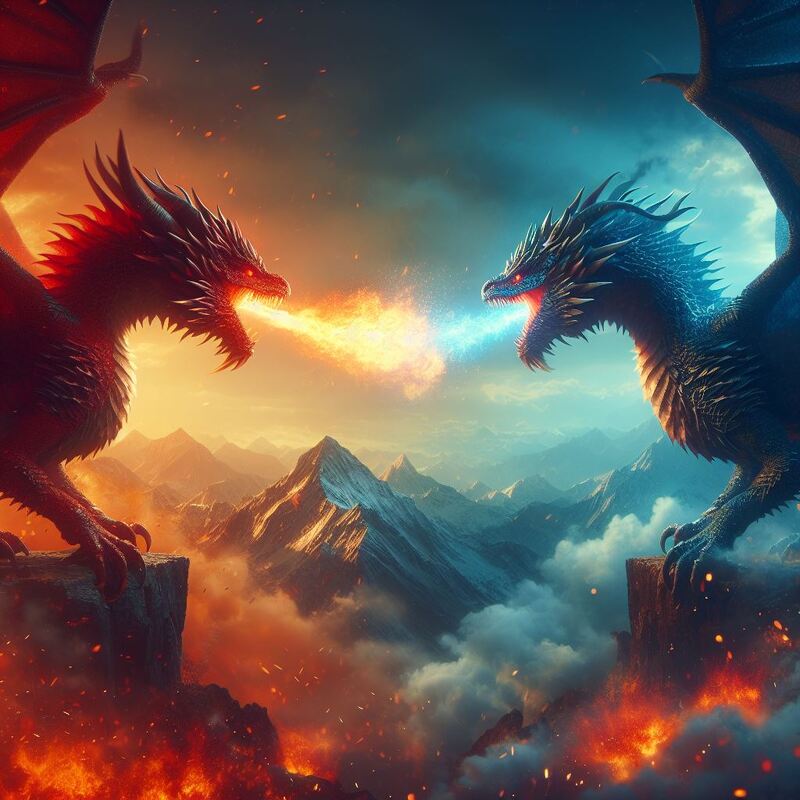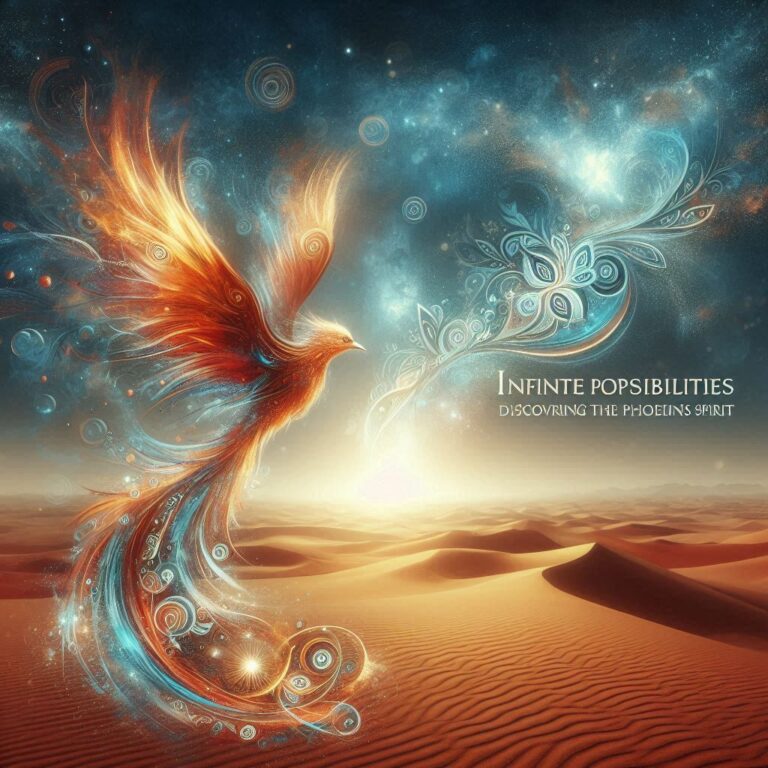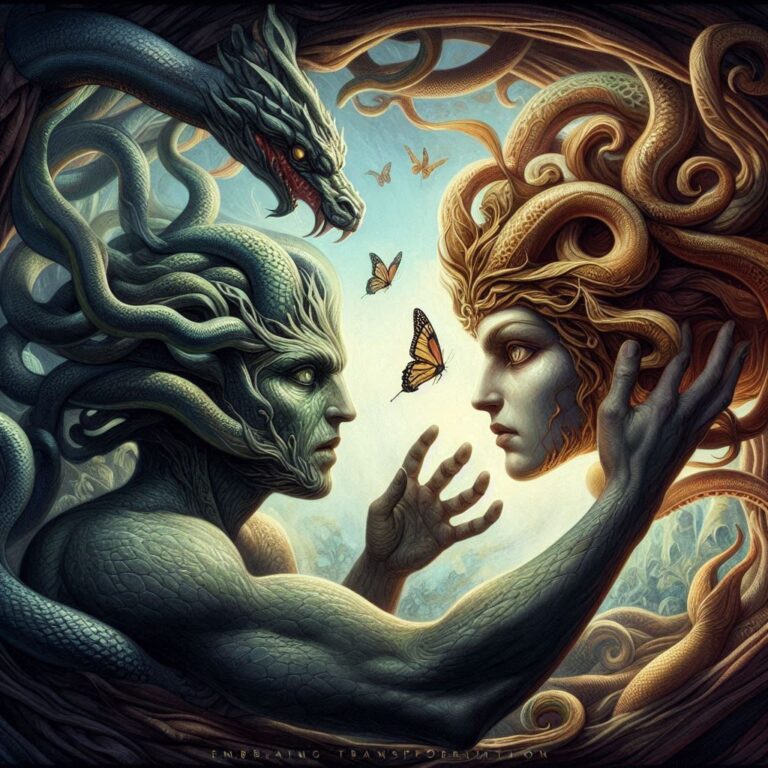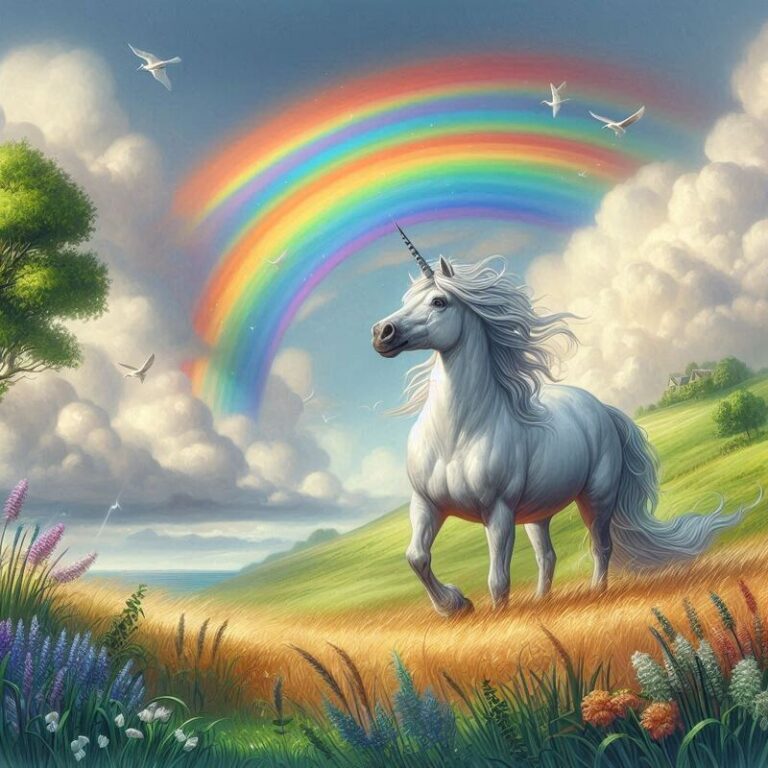Dragons Mythical Beasts of Legend and Lore
Dragons Mythical Beasts of Legend and Lore
Introduction:
Dragons, the iconic creatures of myth and legend, have fascinated humanity for centuries with their majestic presence, fearsome power, and enigmatic allure. From ancient civilizations to modern popular culture, dragons have permeated the collective consciousness, serving as symbols of strength, wisdom, and mystery. In this comprehensive exploration, we delve into the rich tapestry of dragon lore, tracing their origins, examining their cultural significance, and unraveling the enduring fascination they hold for people around the world.
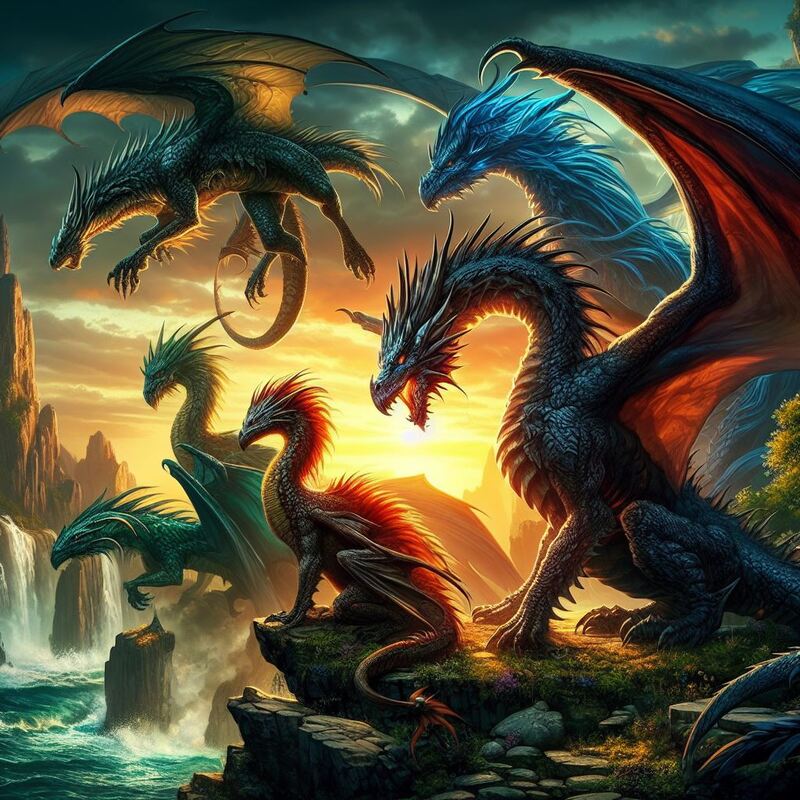
Dragons Mythical Beasts of Legend and Lore
Origins of Dragon Lore:
The origins of dragon mythology can be traced back to ancient civilizations across the globe, each imbuing these mythical creatures with unique attributes and symbolism. In Chinese mythology, dragons are revered as benevolent deities associated with rain, rivers, and the bounty of nature. Often depicted as serpentine creatures with elongated bodies and colorful scales, Chinese dragons symbolize power, prosperity, and good fortune. Similarly, in European folklore, dragons are portrayed as fearsome beasts guarding treasure hoards or terrorizing villages, embodying the primal forces of chaos and destruction. These diverse interpretations of dragons reflect the cultural values, beliefs, and fears of their respective societies, shaping the mythology and legends that endure to this day.
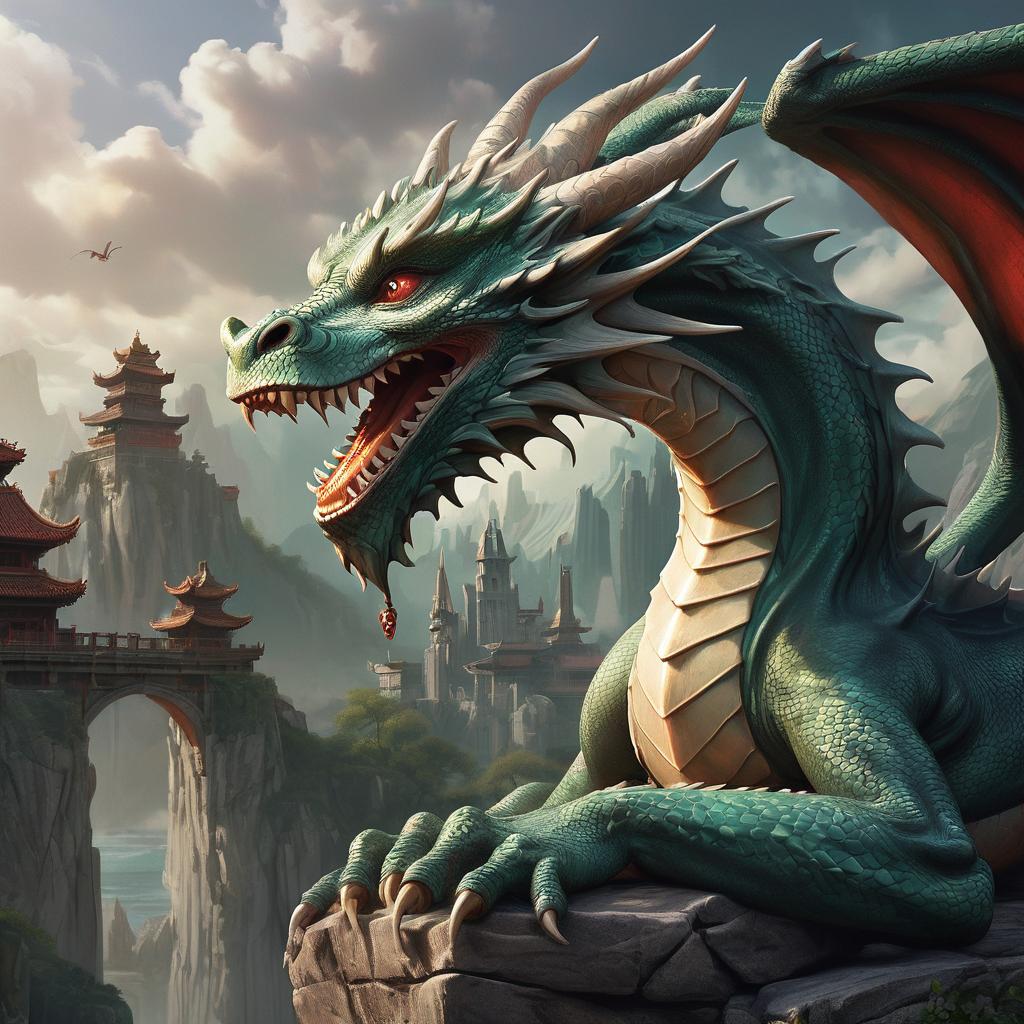
Dragons Mythical Beasts of Legend and Lore
Symbolism of Dragons:
Dragons have long been imbued with rich symbolism and meaning, representing a wide range of concepts and attributes across different cultures and traditions. In many Eastern cultures, dragons are revered as symbols of strength, courage, and protection, serving as guardians of sacred places and wise mentors to heroes on their quests. Additionally, dragons are often associated with wisdom, knowledge, and enlightenment, embodying the pursuit of truth and spiritual enlightenment. In Western mythology, dragons are often depicted as symbols of power, greed, and temptation, representing the eternal struggle between good and evil. These symbolic interpretations of dragons reflect the human psyche’s fascination with the unknown and our enduring quest for meaning and understanding in the world.
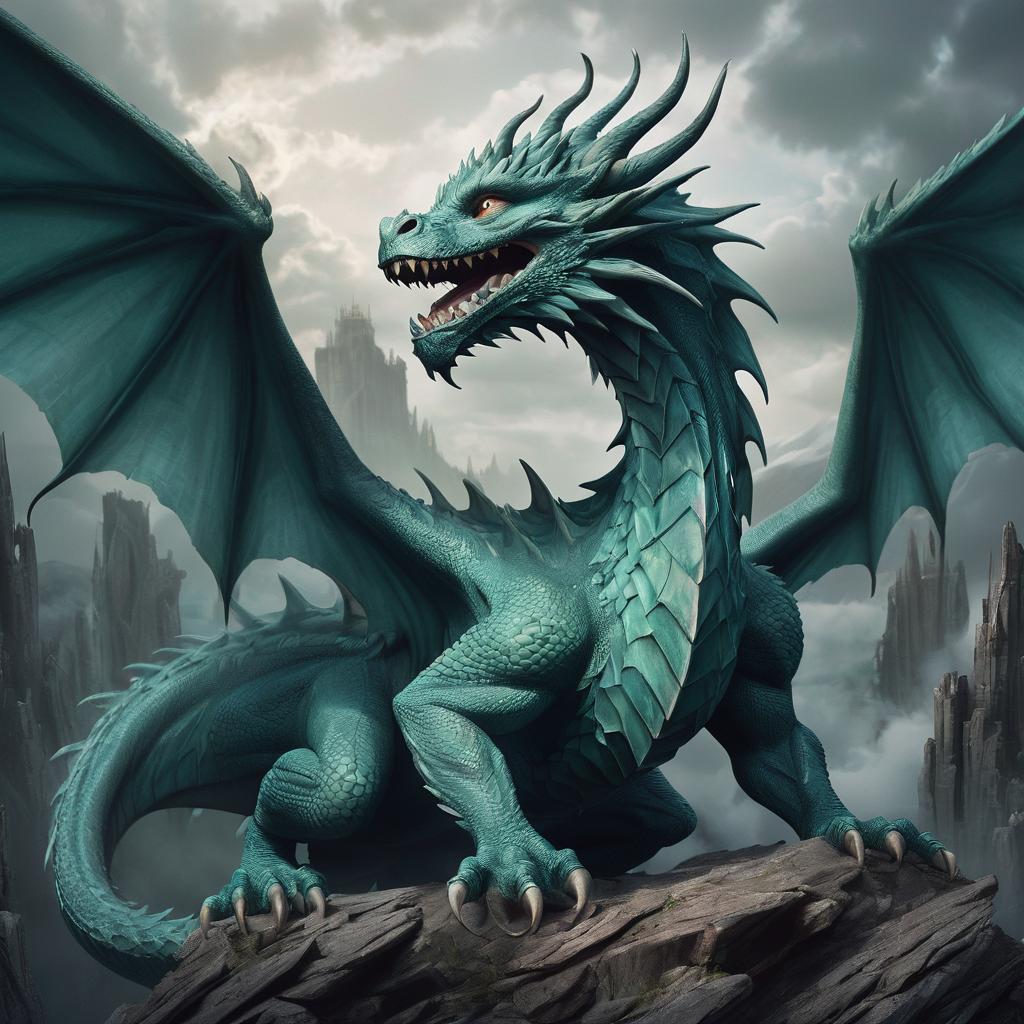
Dragons Mythical Beasts of Legend and Lore
Dragons in Literature and Folklore:
Throughout history, dragons have played a central role in the folklore, mythology, and literature of cultures around the world. From the epic tales of dragonslayers and heroic knights to the intricate tapestries of Eastern fables and legends, dragons have captured the imagination of storytellers and audiences alike with their awe-inspiring presence and larger-than-life personalities. In European folklore, dragons are often depicted as fearsome adversaries to be vanquished by brave heroes seeking glory and treasure. In contrast, in Eastern mythology, dragons are revered as wise and benevolent beings, revered for their wisdom and power to bring rain and prosperity to the land. These diverse depictions of dragons reflect the cultural values and beliefs of their respective societies, shaping the stories and legends that endure to this day.
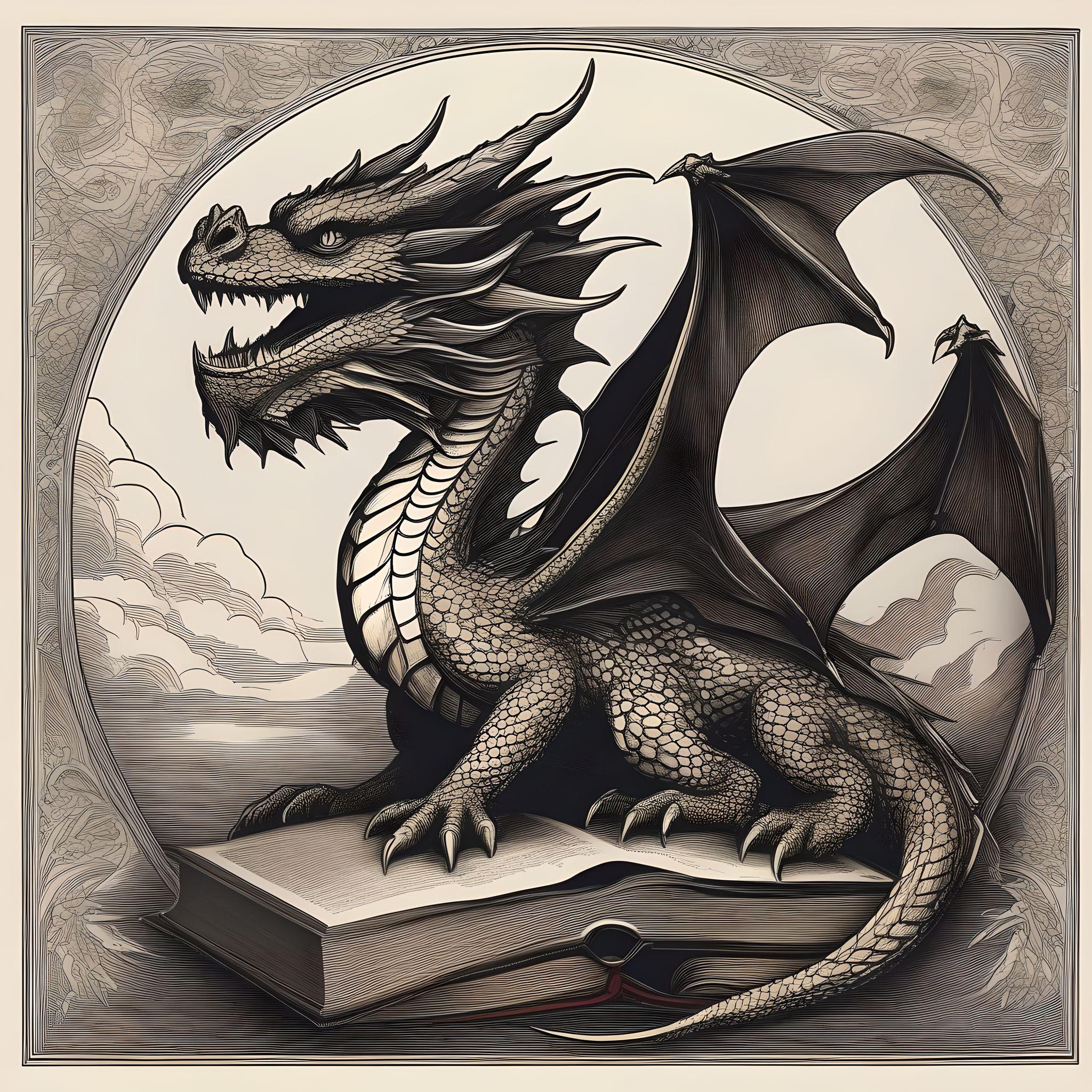
Dragons Mythical Beasts of Legend and Lore
Dragons in Modern Popular Culture:
In contemporary popular culture, dragons continue to thrive as beloved icons of fantasy and imagination, captivating audiences of all ages with their awe-inspiring presence and larger-than-life personalities. From the iconic dragon Smaug in J.R.R. Tolkien’s “The Hobbit” to the fire-breathing creatures of “Game of Thrones,” dragons have become synonymous with the epic sweep of fantasy storytelling, serving as powerful symbols of power, magic, and adventure. In addition to their role in literature and film, dragons also feature prominently in video games, graphic novels, and collectible card games, where they are celebrated as formidable allies and fearsome foes in epic quests for glory and treasure. These modern interpretations of dragons continue to capture the imagination of fans around the world, inspiring a new generation of storytellers and artists to explore the timeless appeal of these mythical creatures.
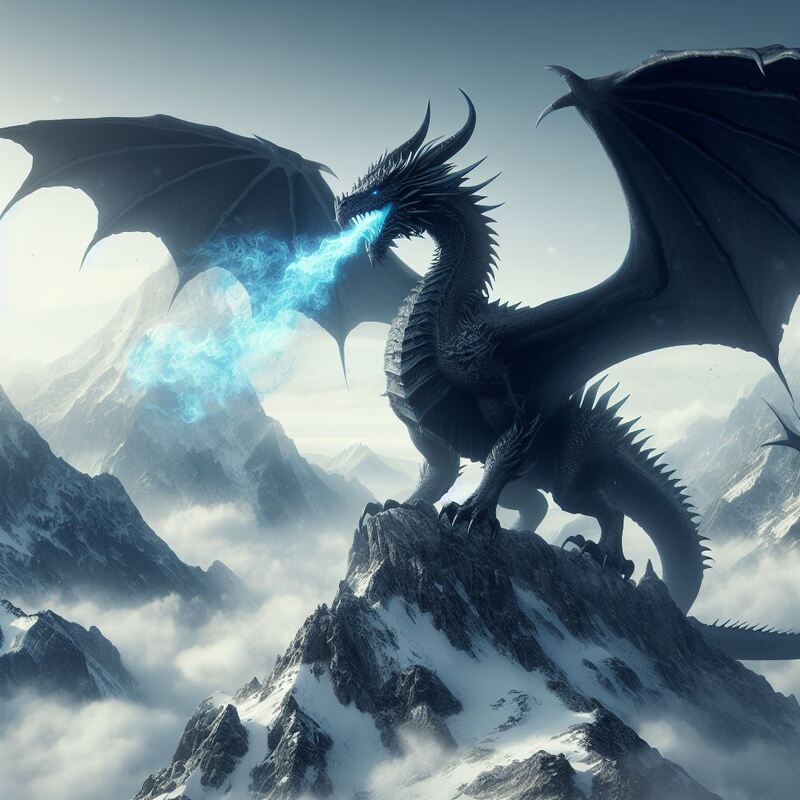
Dragons Mythical Beasts of Legend and Lore
Conclusion:
Dragons, with their majestic presence, fearsome power, and enigmatic allure, continue to hold a special place in the hearts and minds of people around the world. From ancient mythology to modern popular culture, dragons have captivated humanity with their awe-inspiring presence and larger-than-life personalities. Whether revered as wise guardians or feared as formidable adversaries, dragons embody the eternal struggle between good and evil, light and darkness, in the human psyche. So, let us continue to celebrate the rich tapestry of dragon lore, honoring the legacy of these mythical beasts as symbols of strength, wisdom, and mystery that continue to inspire and enchant us to this day.
